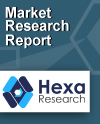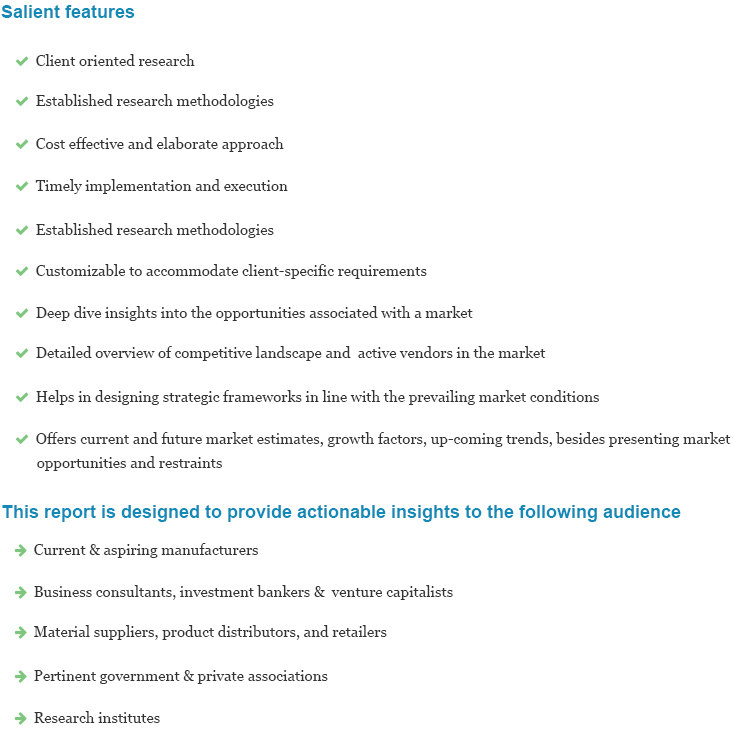
Bio-based Polyurethane (PU) Market Analysis, Market Size, Application Analysis, Regional Outlook, Competitive Strategies And Forecasts, 2012 To 2020
- Published: January, 2015
- Format: Electronic (PDF)
- Number of pages: 70
- Industry: Renewable Chemicals
Increasing bio-based polymers demand owing to industries reducing reliance on conventional polymers is expected to fuel the global bio-based polyurethane (PU) market growth over the next eight years. Growing awareness towards bio-based raw material usage to reduce negative environmental impacts is anticipated to bolster the bio-based PU market growth. Increasing conventional polymer prices owing to volatile crude oil prices are expected to have positive impact on global bio-based PU market growth. Stringent regulations on petrochemicals and conventional polymers coupled with manufacturing bio-based polymers favorable scenario are anticipated to fuel the bio-based PU market growth. Bio-based PU is generally manufactured by reaction of bio-based polyols and synthetic diisocyanates. Polyurethane contains 30% to 70% bio content depending on raw material used for manufacturing polyols. Primary bio-based polyols raw materials include castor oil, sunflower oil, soybean oil and rapeseed oil. Innovative developments to produce 100% bio-based polyurethane are expected to substitute the synthetic polyurethane market applications over the forecast period.
Currently, bio-based PU market share is very low as compared to synthetic polyurethane on account of high prices. However, environmental awareness is expected to shift industries towards bio-based PU as feedstock. Most of the PU manufacturing companies are switching towards eco-friendly and renewable resources. They are investing huge capitals or collaborating with other biotechnology companies to develop bio-based resources. Use of bio-based PU is not expected to only reduce carbon footprint but also help to sustain profitability in long term and to retain high performance and durability in the global market. High processing cost and complex manufacturing process compared to synthetic PU is expected to hinder the bio-based PU market. High PU prices lead to alter the byproduct prices, which is likely to have negative impact on the competitive global market. Manufacturing facilities expansion coupled with innovative developments to sort out these problems are expected to create immense opportunities in the bio-based market over the next eight years.
Bio-based PU market is segmented on the basis of product into flexible foams, rigid foams and CASE-‘coatings, adhesives, sealants and elastomers’. Flexible and rigid foams together accounted over 70% global product market share in 2013. Flexible foams attributed to major bio-based PU application market and have applications in thermal insulation, shoe soles, sports equipment and automotive seating. Increasing eco-friendly material demand in automotive and shoe industries is anticipated to spur the product market growth over the forecast period. Rigid foams are used in automotive doors and front panels. CASE is manufactured to employ in several coating solutions for woods, concrete, plastics and also as waterborne and binder urethane. Recently, CASE market share was less but is expected to grow at rapid pace over the forecast period.
On the basis of end-use segment, construction dominated the application market accounting for over 20% market share in 2013. Demand for high impact resistant bio-based material in construction and insulation panels especially in emerging economies such as Brazil, China and India is anticipated to bolster the bio-based PU application market over the next eight years. Urbanization and rapid infrastructure development is projected to boost the application market in the region over the foreseeable. Increasing bio-based PU demand from automotive and furniture industries is expected to drive the market in near future.
Asia pacific dominated the global bio-based PU market in 2013, and is anticipated to show the fastest growth over the next eight years. Increasing manufacturing capacity coupled with plentiful diisocyanates availability in the region is projected to boost the global bio-based PU market. Emerging economies such as India and China are anticipated to witness the global market growth over the forecast period owing to increasing infrastructural development activities. Strict regulations and norms in North America and Europe to use optimum quantity of bio-based materials are anticipated to have positive impact on the bio-based PU market. Ford Motor Company uses over 70% bio-based PU foams to manufacture automotive seating.
The global bio-based PU market is highly concentrated. The market participants are trying to sustain their market share by innovative developments coupled with bio-based polyurethane patented manufacturing processes using polyols. Major market participants include Lubrizol, BASF, The Dow Chemical Company, Rampf Ecosystems, Biobased Technologies, Mitsui Chemicals, Hitachi Chemical Company and Rhino Linings. Lubrizol acquired Merquinsa to take over TPU portfolio and joint venture of Purac and BASF to manufacture bio-based succinic acid aimed to diversify bio-based PU market.

Choose License Type
- World's largest premium report database
- Transparent pre & post sale customer engagement model
- Unparalleled flexibility in terms of rendering services
- Safe & secure web experience
- 24*5 Research support service
